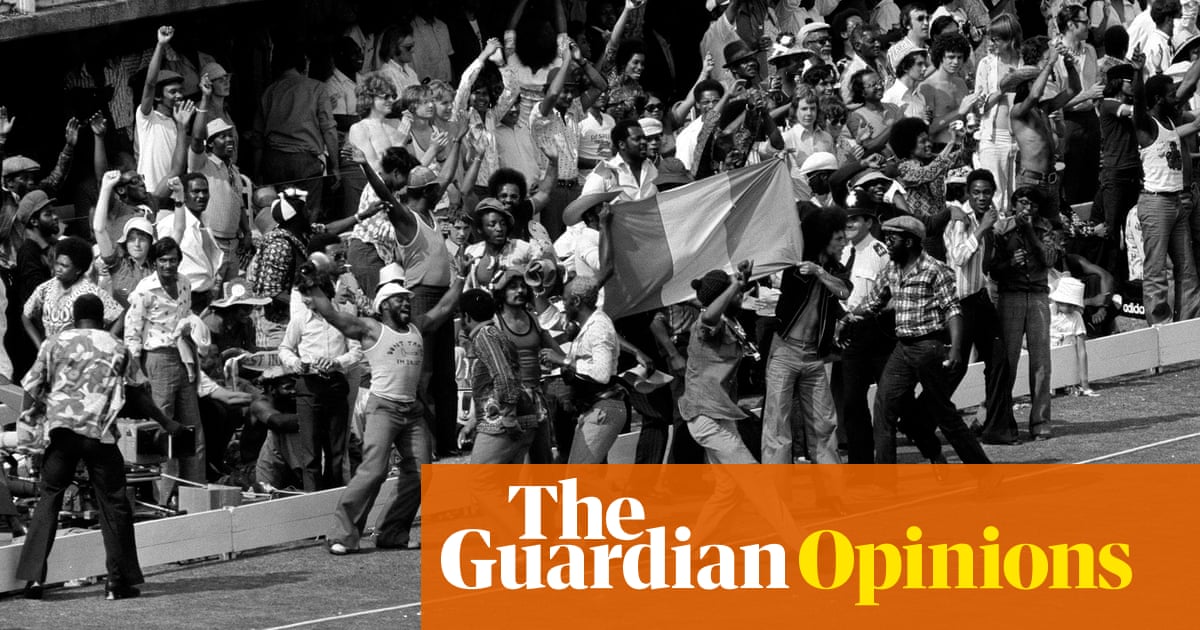ECB’s failures on Caribbean cricket in England are worse than Robinson’s tweets | Lonsdale Skinner - 5 minutes read

I think England cricketer Ollie Robinson should be punished for his racist tweets. Young man or not, he knew what he did. But the real problem is that he is a product of an environment created over the years by the cricket authorities, among other agencies.
In 1948, there were 30,000-50,000 black people in Britain. There were British-born black rugby league players, rugby union players, footballers and boxers of repute, but not one black British cricketer of note. Why? If black people were here and they weren’t playing cricket there must have been something stopping them.
Immigration in the late 1940s and onwards from the cricket-loving English-speaking Caribbean brought some good players, but they were largely shunned by the counties. The cricket authorities did not like the way they played the game, in an aggressive manner. Some said they played like children, rough and ready.
In club cricket, the new immigrants were forced to form their own teams because the large, mostly white, clubs wouldn’t allow them to become members or use their facilities. Very few of these Caribbean clubs had their own grounds and generally played in parks. Then the Race Relations Act of 1968 opened the door for the Caribbean immigrants to become members. It did not mean the racism stopped, but it removed the unofficial colour bar.
Some Caribbean club cricketers would play for the large white local cricket clubs on Saturdays and little black clubs on Sundays. The little Caribbean clubs were the ones that produced the first-class cricketers, but they started to disappear because they couldn’t afford to pay the ground hiring fees. The ECB (and its predecessor the TCCB) knew of the clubs’ financial difficulties but did nothing except join the highly publicised chorus that the blacks don’t like cricket any more. The question is, why didn’t the body responsible for the game of cricket in England help?
The West Indies cricket team were triumphant in the 1970s and 1980s. They filled the grounds like the Indians do now. Caribbean people were watching and playing for the counties, the majority imported to revitalise the then dying county game. But the success of these imported players, alongside the success of the West Indies team, bred animosity. Some former England players such as Fred Trueman were among the critics who openly called on the counties to dismiss Caribbean-born players. Unfortunately, this exclusion also included many players of Caribbean origins who were raised in England. The exclusion trend is still being played out today.
In 1999 the Clean Bowl report was published with a fanfare and the then ECB CEO, Tim Lamb, told the public that “Complacency on racial equality is not acceptable’’ and “We must open our doors to everyone’’. Twenty years later, and the very same organisation that is sanctioning Robinson have done very little with the report. They’ve done worse than Robinson by knowingly squeezing Caribbean cricket in England, by refusing to fund it, but no one is sanctioning them.
For 28 years from 1992, the ECB did not appoint a non-white match official at first class level, until this year after John Holder and Ismail Dawood threatened them with an Employment Tribunal case and they appointed Devon Malcolm and Dean Headley. Why wouldn’t the ECB employ one of these officials when they had this great big report on their desk?
For the last four years, they have spent nearly £2m on south Asian cricket, because India has become a big powerful body in cricket. I don’t want to take money away from the south Asians but where is the money for Caribbean cricket in England? The ECB are looking at Cindy Butts (Chair of the Independent Commission for Equity in Cricket) to take away all their sins. They think she’s Jesus Christ. She will report in June 2022, but by the time they sit down and consider its contents it is likely to be 2024. In the meantime, what will happen to the already struggling Caribbean cricket clubs? I am of the opinion that the ECB will be happy with their demise.
The county cricket academy system was developed by middle-class whites for middle-class whites. The attendance times for young men and women at these academies are mostly unsuitable for poor working people who are expected to accompany their children to the activity. In addition, state school cricketers are unfairly expected to compete with those from fee-paying schools with year-round cricket facilities and coaching for limited cricket academy places. Yet this is supposed to be a sport for all in Britain.
The outgoing Surrey CEO, Richard Gould, ought to be given a lot of credit. Representatives from the African Caribbean Cricket Association went to see him in 2019 to exchange ideas about increasing the participation of young people of Caribbean heritage in cricket. Within a month he came up with the now impressive ACE programme consisting of young people who supposedly don’t like cricket.
Why have no questions been asked of the three CEOs – Lamb, David Collier and Tom Harrison – who have been sitting on that 1999 report? This is the real scandal. Why did Harrison wait until June 2020, when the young people were running the streets, to start talking about inclusion of people of Caribbean heritage in cricket? The ECB then chose not to put a penny towards Caribbean cricket in their 2021 budget. It is so sad because there are some fantastic, talented young cricketers within the various Caribbean communities in England.
Source: The Guardian
Powered by NewsAPI.org